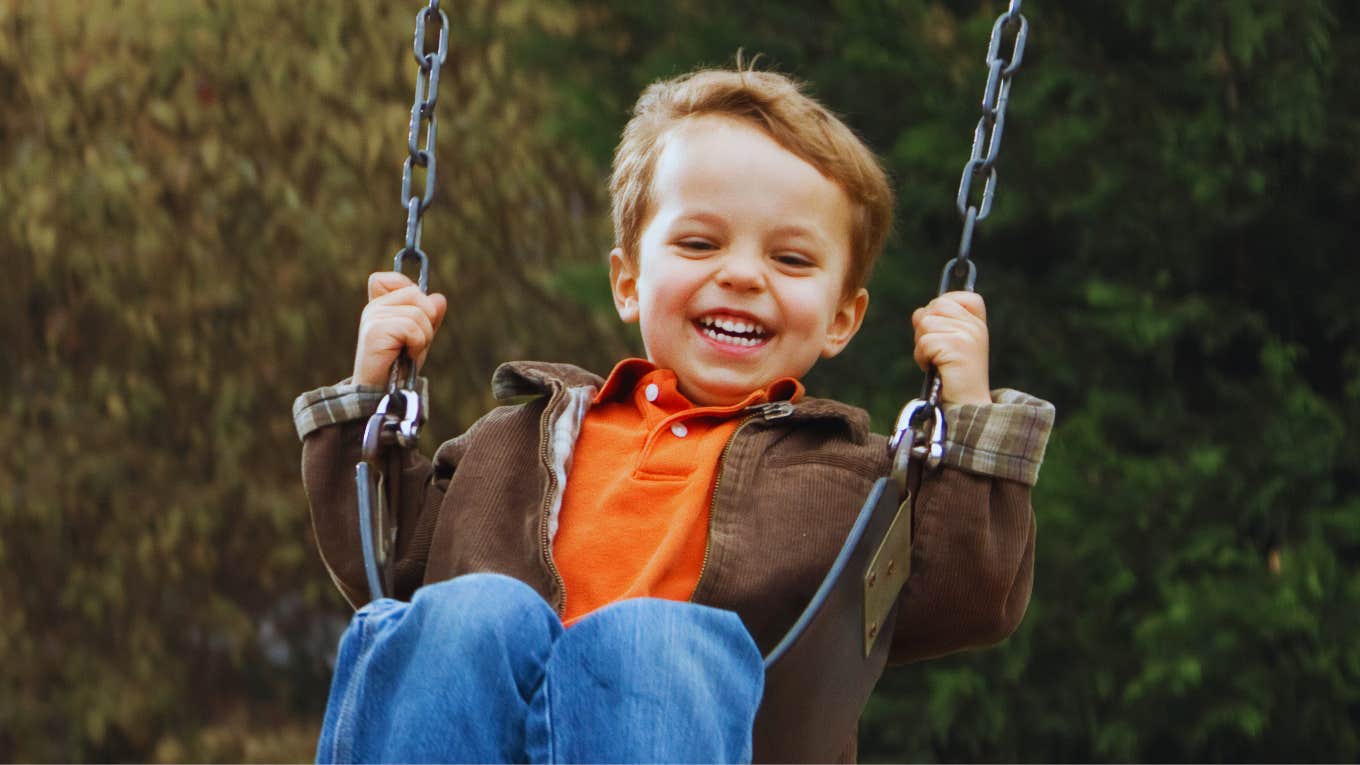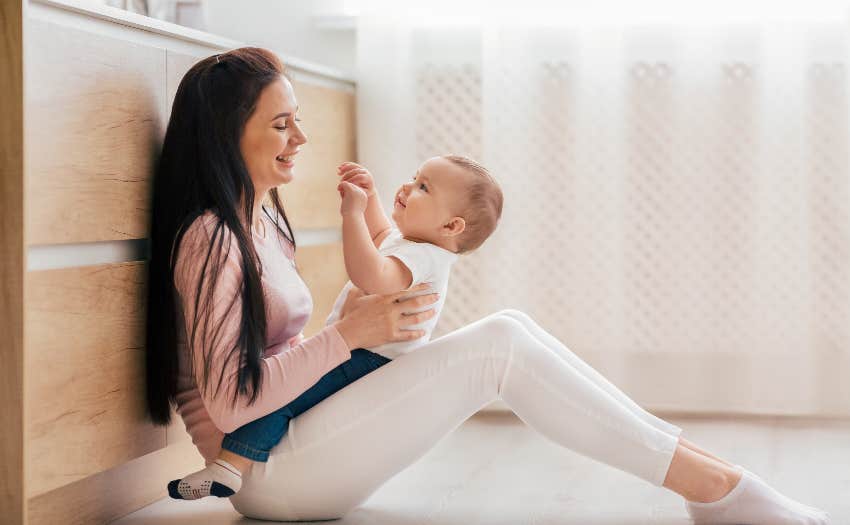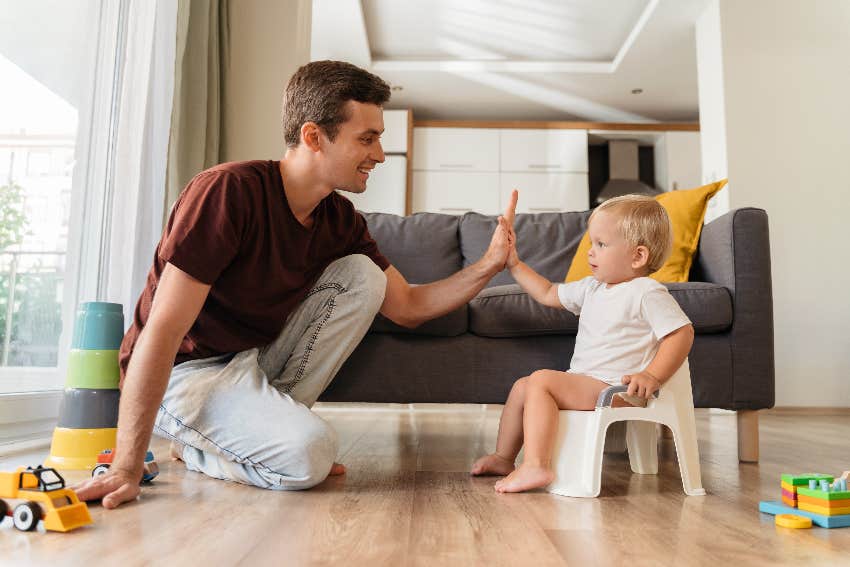The Two Parenting Years That Matter Most To Your Child's Success, According To Research
Why these years can affect how your child will love and grow as an adult.
 National Cancer Institute | Unsplash
National Cancer Institute | Unsplash Americans have long been on a quest to understand who we are as individuals. We assume that when we find the key to our identities, we will be able to unlock why we do what we do.
If you ask journalist and author Peter Lovenheim, that drive is largely what’s behind the 12.5 million people in the United States who have sought genetic testing in recent years. But Lovenheim argues that while DNA can tell you where you come from, the answer to why we behave the way we do is closer to home.
In fact, in his book The Attachment Effect, he suggests the earliest bonds with our parents or guardians are really what define who we become.
According to the research, the first two years of life matter most to your child's success because that's when attachments are formed.
 Prostock-studio / Shutterstock
Prostock-studio / Shutterstock
How can that be? Because human lives are based on relationships. And current research suggests that the attachments formed in the first two years of life have a profound effect on how we behave in a diverse range of human relationships, from love, to work, to politics.
Lovenheim has built his case on the importance of parental attachment through years of research and conversations with developmental scientists.
We spoke to Lovenheim about what parental attachment looks like and how it changes the way we interact with the world.
YourTango: You discuss the sudden popularity of DNA testing but argue that looking at attachments can tell us more about ourselves. This seems like a fundamental nature vs. nurture issue.
Peter Lovenheim: Genetic testing is great. It can tell you what continents your ancestors came from — maybe your susceptibility to certain diseases. But it doesn’t tell you the important things about what shaped your personality and how you became the person you are.
That’s the other side of what I think of as the nature/nurture question — the genetic testing tells us the nature part, but not the nurture part. However, we can unlock the answer to the nurture part, in my opinion, through this thing called attachment science.
YT: So what is attachment science, essentially?
PL: Attachment science is all built on the ideas of John Bowlby, a British psychologist working in the years following World War II, right up to through the 1980s and early 90s.
He developed this thing called attachment theory. In a nutshell, attachment theory says that because human beings are born helpless, we are hardwired at birth to seek out and attach to a competent and reliable caregiver for protection.
YT: I feel like you’re very careful about the word “Caregiver.”
PL: Well, usually that’s the mother, but it’s not a gender-specific role. It can also be the father, grandparent, or another adult.
But the quality of that first bond, whether it’s stable and loving or inconsistent or even absent, will shape the developing brain and influence how that individual behaves in relationships. I would say, secondarily, it also affects the individual in how they react to stress or threats.
YT: And you’re saying that this influence isn’t just during childhood.
PL: That effect will continue throughout life. Just looking at relationships, will affect how that person, once grown into adulthood relates to children and aging parents, romantic partners and spouses, closest friends, colleagues at work, teammates on sports teams, and even how they relate to political leaders and ideologies, even how they relate to God, or whatever they conceive of as God. So it’s a lifelong effect.
YT: Clearly, this has huge implications for people who are parents now, or are planning on becoming parents, right?
PL: In terms of parenting, I feel very strongly as a father, and now a grandfather, that we have a responsibility to give our kids what I think is the most precious gift that we can give them: a secure attachment.
 Arsenii Palivoda / Shutterstock
Arsenii Palivoda / Shutterstock
YT: So exactly what is a secure attachment?
PL: To form a secure attachment, somebody has to be a consistent caregiver or, you know, it can be more than one person but the person who the child bonds is not interchangeable, so somebody has to be that consistent caregiver from the beginning. We need to give out kids attuned care — we need to be sensitive enough to our children’s signals to correctly read what they need and then respond appropriately.
YT: That sounds complicated. What does it look like?
PL: Well, for example, we need to learn the difference between their cries. There’s the "I’m tired" cry, the "I’m hungry" cry, the "I’m fine but I just want to keep playing" cry, and there’s the "I’m terrified and I don’t want to be alone right now" cry. You know?
And to do that we generally need to get close enough, often enough to our infants and young children to learn how to correctly read their signals. This gets into the core practices of what’s called attachment parenting.
YT: Right. Attachment parenting feels pretty new as a parenting style.
PL: It’s all about being sensitive to the child’s needs and responding appropriately.
Some of its methods are breastfeeding, what’s called babywearing, and co-sleeping. By the way, that doesn’t mean sleeping in the same bed, but maybe for the first 4 to 6 months keeping the baby in the room so, again, we can learn and correctly read their signals.
YT: And, so, what does the research say are the results of secure attachment?
PL: What’s great is that the research shows that people who come out of early childhood with secure attachment — get the big prize. They generally find it easy to trust others. They’re comfortable with intimacy.
When faced with setbacks in life — illness, injury, job loss, loss of a loved one – they generally show a lot of resilience and can cope well. Ultimately they tend to enjoy stable long-term, loving relationships. So, that’s a lot.
YT: Is there also insecure attachment, then?
PL: Well, then there are a couple of different types. First is what we call ‘insecure-avoidant attachment’ which happens when kids consistently do not receive sensitive responsive care. As adults, these individuals find it hard to trust others.
They tend not to be comfortable with intimacy. They kind of don’t get what the whole thing is about.
They’re much more inclined to be self-reliant and want to be independent. This is not a bad thing, it’s just that, particularly in terms of relationships they’re much less likely to enjoy stable, long-term relationships. Both with friends — by the way — and romantic partners.
YT: That doesn’t sound that great.
PL: Well, the other type of insecure attachment is called ‘insecure-anxious.’ This happens when kids sometimes get the responsive, sensitive care they need, but sometimes don’t. As adults, they have a difficult time trusting a partner. They crave intimacy but they need constant reassurance that their partner is there for them.
Their relationships tend to have a push-pull quality: “I want to be with you, but I’m not sure I feel comfortable relying on you.” They also tend to lack resilience. They don’t cope well with loss.
YT: So how does a person know where they stand? I mean, it’s not like you can remember back to when you were two years old.
PL: If you look at the population as a whole in the United States — and it holds pretty well across other cultures — we find about 55 percent of adults come out of childhood with a secure attachment, about 25 percent with avoidant attachment, and about 15 percent with anxious attachment.
YT: That sounds like good news.
PL: Well, it also means that nearly half the adult population in any society is walking around with an insecure attachment.
YT: Are those people just doomed to live out lives full of struggling relationships then?
PL: It is possible to change as we go through life.
However, about 75 percent of people go through their lives with the same attachment type they had in early childhood. And so in terms of fathering, I just feel that we have a responsibility to learn about how to raise our sons and daughters so that they will have a secure attachment and enjoy all the benefits, probably long after we’re gone.
YT: So the science of attachment has been around for a long time. Is there any evidence that parental attachment is changing?
PL: I just came across a new piece of research that I’m fascinated by. It’s the mega-study looking at 25,000 millennial college students whose attachment styles were measured.
The study found there was an almost doubling of the prevalence of avoidant attachment among this population compared to the previous generation of college students. Now if that’s valid, I think that’s very concerning.
YT: What could be behind that shift?
PL: The authors of the study speculate about why this might be. They considered things like the prevalence of two working parents, and maybe there wasn’t a consistent caregiver for many of these kids.
Maybe they were passed around between mom and dad and nanny and daycare. They also look at the amount of time these kids have spent since infancy, relating to machinery, or watching screens. So if this is valid I think it’s a fascinating area for further work.
YT: So there’s this danger of raising a generation of avoidant, attached kids. What is the upshot of that?
PL: There’s some other interesting research showing that in adults taking care of their aging parents, their motivation and the quality are also connected with their attachment style — so ultimately if you’re raising a secure kid you may be raising your quality caregiver later in life.
When we undertake the sacred duty of raising a human being, we have an enormous opportunity to give our kids their most precious gift and that’s the gift of a secure attachment.
Patrick A. Coleman is a writer, and a journalist, and has been an editor for The Portland Mercury, Thrillist.com, and Fatherly.

